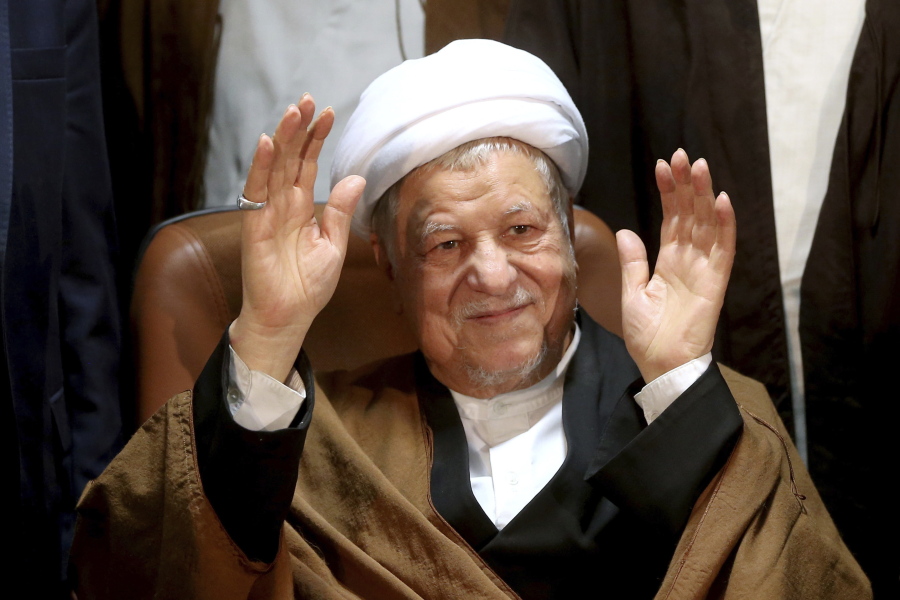TEHRAN, Iran — Former Iranian President Akbar Hashemi Rafsanjani, a wily political survivor and multimillionaire mogul who remained among the ruling elite despite moderate views, died Sunday, state TV reported. He was 82.
Iranian media reported earlier Sunday that he was taken to a hospital north of Tehran because of a heart condition. State television broke into programming to announce his death, the female newscaster’s voice quivering as she read the news.
She said Rafsanjani, “after a life full of restless efforts in the path of Islam and revolution, had departed for lofty heaven.”
Rafsanjani’s mix of sly wit and reputation for cunning moves — both in politics and business — earned him a host of nicknames such as Akbar Shah, or Great King, during a life that touched every major event in Iranian affairs since before the 1979 Islamic Revolution.
His presence — whether directly or through back channels — was felt in many forms. He was a steady leader in the turbulent years following the overthrow of the U.S.-backed shah, a veteran warrior in the country’s internal political battles and a covert go-between in intrigue such as the Iran-Contra arms deals in the 1980s.
He also was handed an unexpected political resurgence in his later years.
The surprise presidential election in 2013 of Rafsanjani’s political soul mate, Hassan Rouhani, gave the former president an insider role in reform-minded efforts that included Rouhani’s push for direct nuclear talks with Washington.
Rouhani’s victory was also another example of Rafsanjani’s remarkable political luck. Rafsanjani was blocked from the ballot by Iran’s election overseers — presumably worried about boosting his already wide-ranging influence. But, in the end, many moderates turned to Rouhani as an indirect vote for Rafsanjani.
It came after years of dwindling influence. Another presidential comeback bid was snuffed out by Mahmoud Ahmadinejad’s surprise victory in 2005 elections.
Rafsanjani was a close aide of Ayatollah Ruhollah Khomeini, the leader of the 1979 Islamic Revolution, and went on to serve as president from 1989 to 1997 during a period of significant changes in Iran. At the time, the country was struggling to rebuild its economy after a devastating 1980-88 war with Iraq, while also cautiously allowing some wider freedoms, as seen in Iran’s highly regarded film and media industry.
He also oversaw key developments in Iran’s nuclear program by negotiating deals with Russia to build an energy-producing reactor in Bushehr, which finally went into service in 2011 after long delays. Behind the scenes, he directed the secret purchase of technology and equipment from Pakistan and elsewhere.
Rafsanjani managed to remain within the ruling theocracy after leaving office, but any dreams of taking on a higher-profile elder statesman role collapsed with Ahmadinejad’s disputed re-election in 2009 and the intense crackdown that followed. Rafsanjani’s harsh criticism of Ahmadinejad branded him as a dissenter in the eyes of many conservatives.



